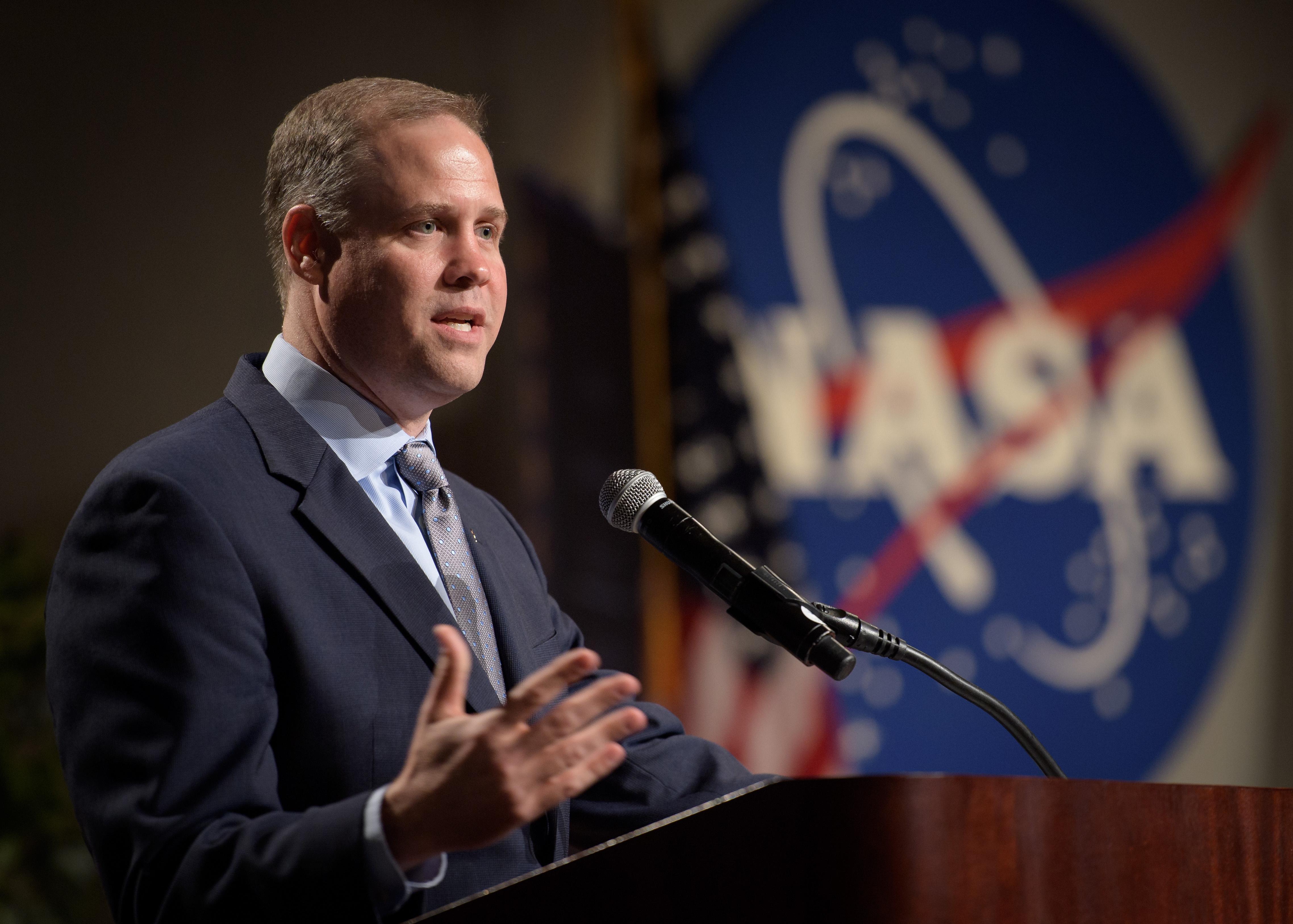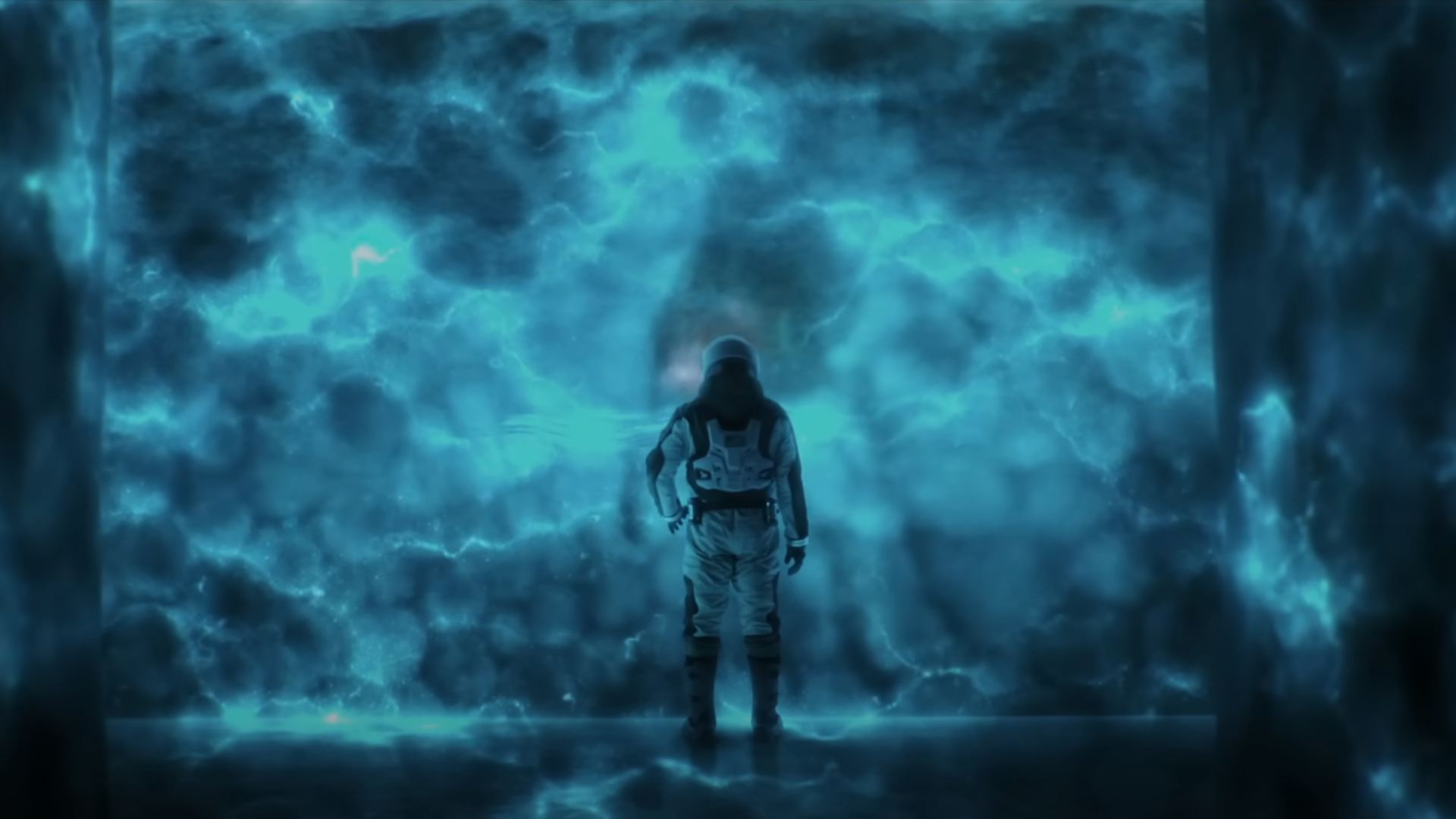
Like its parent nation, NASA needs to prioritize bridging divides, the agency's outgoing chief said.
Jim Bridenstine, who served as NASA administrator from April 2018 through today's (Jan. 20) inauguration of President Joe Biden, said that his successor should strive to bring the agency together as much as possible.
"As far as, like, what advice I could give to the next administrator, it is to find wherever there are divisions and eliminate them," Bridenstine told reporters during a teleconference yesterday (Jan. 19). Bridenstine said in November that he would step down as NASA chief when the Biden administration took over, according to an Aerospace Daily & Defense Report.
"When I was in the House of Representatives, Republicans were for going to the moon and Democrats were for going to Mars," said Bridenstine, who served as a Republican representative from Oklahoma's 1st Congressional District from January 2013 until he took the helm at NASA.
Related: Presidential visions for space: From Ike to Biden
"That is a terrible way to look at space exploration," he added. "It should never be political. It should never be partisan. It should always be uniting. It should bring people together for science and discovery and exploration."
That unity and shared sense of purpose should be fostered across NASA, with people throughout its various sectors buying into the agency's long-term goals rather than fighting amongst themselves for budgetary primacy in a zero-sum game, Bridenstine said.
Breaking space news, the latest updates on rocket launches, skywatching events and more!
He cited NASA's Commercial Lunar Payload Services (CLPS) program as a way in which the agency's human and robotic exploration divisions can work together, and with the private sector to boot. CLPS contracts with private companies to ferry NASA science experiments to the moon, where they will gather data that will help pave the way for human exploration as early as 2024.
Those crewed lunar missions will be flown via NASA's Artemis program, which aims to establish a sustainable, long-term human presence on and around the moon by the end of the decade. Such work will help the agency prepare for its next giant leap in human exploration — a crewed mission to Mars, which NASA aims to execute in the 2030s.
The ambitious Artemis timeline may be relaxed a bit under President Biden, experts say. However, Bridenstine hopes that the program will be allowed to continue until it achieves its primary goals years down the road. That won't happen without internal NASA unity and buy-in from political leaders, which will be required for a long-term effort like Artemis, he said.
"This is an agency that does not do well when we get cast to and fro between administrations," Bridenstine said.
NASA should therefore also prioritize securing a "constancy of purpose," he added, "which means we have to constantly be building coalitions, constantly be driving to consensus and constantly be bringing Republicans and Democrats together around a common shared vision, and, as we do that, bringing our international partners with us."
Bridenstine also stressed the unity theme in a three-minute farewell video, which he posted on Twitter today. In that video, he also thanked NASA's employees for all their hard work, saying that serving as NASA chief was "a job of a lifetime."
With Bridenstine stepping down, his former deputy Steve Jurczyk takes the reins as NASA's acting administrator. Jurczyk will serve in this role until President Biden's choice for NASA chief, which he has not yet named, is sworn in.
Bridenstine has not yet announced his next career step. He said during yesterday's telecon that he looks forward to returning to Oklahoma and spending more time with his family.
Mike Wall is the author of "Out There" (Grand Central Publishing, 2018; illustrated by Karl Tate), a book about the search for alien life. Follow him on Twitter @michaeldwall. Follow us on Twitter @Spacedotcom or Facebook.
Join our Space Forums to keep talking space on the latest missions, night sky and more! And if you have a news tip, correction or comment, let us know at: community@space.com.

Michael Wall is a Senior Space Writer with Space.com and joined the team in 2010. He primarily covers exoplanets, spaceflight and military space, but has been known to dabble in the space art beat. His book about the search for alien life, "Out There," was published on Nov. 13, 2018. Before becoming a science writer, Michael worked as a herpetologist and wildlife biologist. He has a Ph.D. in evolutionary biology from the University of Sydney, Australia, a bachelor's degree from the University of Arizona, and a graduate certificate in science writing from the University of California, Santa Cruz. To find out what his latest project is, you can follow Michael on Twitter.
